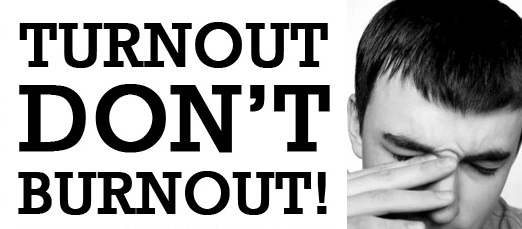It’s been almost a year and a half since I last touched on activist burnout, specifically in the youth demographic.
In that time I’ve been fortunate to have my perspective expand and evolve, thanks to an abundance of, often late night, conversations with close friends. Finding common ground in burnout experience makes it easier to break that silence.
For the past while, my focus has been on community building.
What does that mean? What is a progressive community composed of? How does one use an intersectional approach in community and selfcare?
These questions have been in my mind as I have surveyed the landscape of various community spaces and their struggles to survive across Canada. In doing so, I have clung to the viewpoint that community building — and stewardship — is vital to a thriving activist community and should have just as much emphasis as mobilization and organization within our various causes.
On Saturday, September 21st, I helped to organize the workshop “From Burnout to Community and Selfcare” with Alyson Budd. Its purpose being merely to open up the floor for conversation around burnout, in both activist and artist communities, and to hopefully disperse this dialogue into various circles around the city.
The format was loose, to (hopefully) provide a safe space that could allow room for everyone who wants to speak about how they define and experience burnout and strategies for building communities that can help to prevent it.
This also included an introduction to compiling project Action Plans. Participants were invited to bring community project goals, along with personal goals, to the table and plot the baby steps required to implement them, referencing personal tools to combat mental fatigue in the process.
Recording our emotional maps is just as necessary as making note of our social justice goals. Without the emotional grounding, our social justice goals bear risk of losing fuel.
One thing that stuck out for me in all of this, is how selfcare can be a tool of social change, in and of itself. For example, I wasn’t really aware of the concept and strategies surrounding selfcare until after I really needed them.
We’re simply not taught anything about our bodies and their limitations in our school systems. We live in a state of go-go-go and as soon as we’ve carried the load for far too long and we’ve nothing left to give, we feel a sense of guilt when we’re unable to commit anymore. Unsurprisingly, this cycle doesn’t really work all that well.
And of course, as Kim Crosby explains in Self-Care DIY: A How-to Just for You, the same system that is sacrificial to our emotional and mental health, will accentuate the various oppressions that are already prevalent.
We need to be able to create more spaces to learn about each other’s stories and work together in order to address the systems of advantage that shame genderqueer folks when they go see a doctor, the same system that doesn’t include education for and by First Nations people in our curriculum and the same system that disproportionately incarcerates people of color.
By taking back time as we take back public space, we are defining our own narratives, well-beings and those of our beloved communities. If we can effectively harness the power and skills we bring to political organizing and lend it to our strategies of self and community care, really nothing can stop us.
So was the workshop successful?
I hope so. It’s all just the beginning of the type of mobilization around community selfcare I would love to see happen around the city — and that I intend to keep working on.
With the number of amazing conversations I have had in the past while, this wave of dialogue around selfcare is growing. Stay tuned.
Interested in continuing this dialogue in activist canada? Email [email protected] if you have any project/discussion ideas.
Image: From Burnout to Community and Selfcare event



